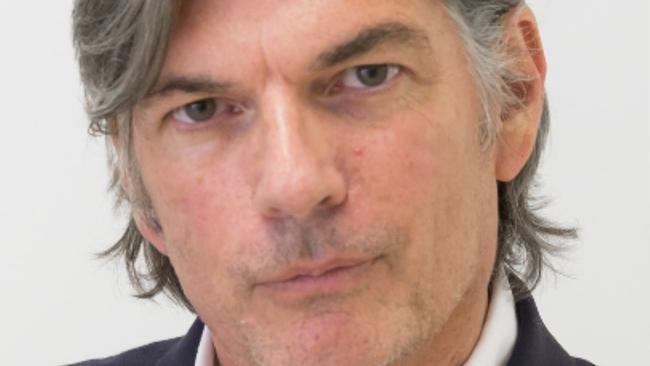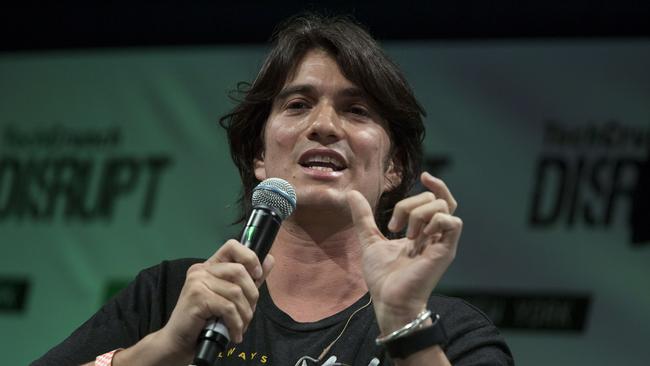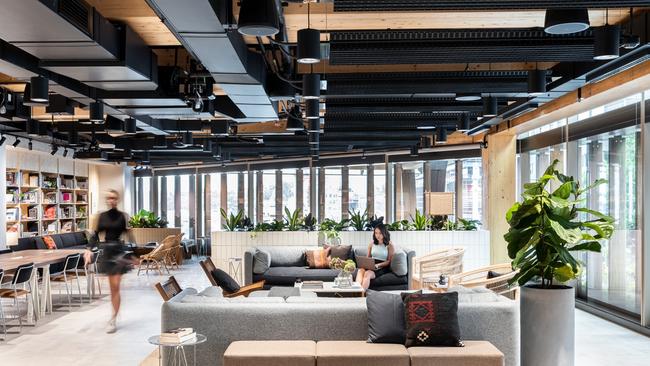WeWork and the future of how we work
The office workplace has been ridiculously demonised over the last two years but to imagine a work culture that never requires people to meet face-to-face seems dystopian. So what are the opportunities ahead?

As just one Victorian who has had to endure the world’s longest lockdown, I have comforted myself by subscribing to practically every streaming service available.
Documentaries have always been my go-to. A habit I picked up when I moved to New York mid last decade to open our advertising agency there.
In going to America, I realised how little I knew about the vast culture that existed between the twin peaks of New York and LA, so I found great historical and anthropological richness in the most unlikely of documentary genres: sports docos.
Sensational series like ESPN’s 30 for 30 taught me about era, socioeconomics, the perennial narrative of racism, poverty, luck, loss and triumph. All with the backdrop of American towns and states I knew little about.
Many of us here in Australia dined out on Netflix’s The Last Dance. A complex story/confessional/take-down/eulogising of Michael Jordan. Pick your take-out. Mine was that I really like Dennis Rodman. But it proved the enormous power of the documentary beyond the sport and the final score.
I watched a new documentary last week. But breaking with my usually sports diet it was Amazon Prime’s WeWork: or the Making and Breaking of a $47 billion Unicorn.
This got my attention because in 2015 as I was setting up Cummins&Partners New York I got a crash course in a completely new sport: New York real estate. And at the time WeWork was creating all the buzz.

WeWork was the brainchild of Adam Neumann, a highly charismatic Israeli entrepreneur with a goopy, hippy, kibbutz-y view of how the workplace could be. Whether he was a true believer in his whole mantra of “We not Me” I’ll leave you to watch and decide.
But WeWork certainly captivated the attention of enough investors to make it, for a few short years, the hottest stock in town and certainly blew a layer of dust off the traditional serviced office model. Yes, he was renting desks. But the narrative he wrapped around it … the brand … was intoxicating.
The documentary was the classic rise and fall story as the title foretold.
But once it ended, it made me wonder about today’s narrative of the working space. The predicted demise of the office, the rise of flexible working and such.
Early in the pandemic I said to our team that I’d love everyone back at the office. And it’s funny what people hear when you say that. Some hear a business owner trying to control staff, lord over efficiency and make people accountable. You know, make sure “they” are really working.
But what I heard me saying … and certainly meaning … is the incredible power of working together, the importance of separating work from home and the value of belonging to something, building something as a team. Yes, the very culture of we not me. The WeWork culture.

Truth be known, I love working from home on stuff that needs detail, attention and just plain quietude. But too much me isn’t good for me.
I realised what I was clumsily trying to say is that I miss the “we”.
Hybrid working is here, has a role and I am all for it, but it’s still business and employers will make sure KPIs are set and managers are tasked with ensuring people are doing what they need to do and are in when they need to be in.
The office workplace has been ridiculously demonised during the past two years. To imagine a work culture that never requires people to meet face-to-face seems dystopian. And so an opportunity exists to make a new working blend more attractive. I’d like to see the office as a recharging station of sorts.
At the very end of the WeWork documentary Megan Mallow, Adam Neumann’s former assistant, was poignant in her view of what was and what is now: “Community has been taken piece by piece from our world for quite a while and very slowly; and now here we are sitting literally in a pandemic with a lack of interaction. I would give anything to be consumed with people again.”
Mallow concluded “the vision of us working together to be better together is lacking today. I think we need that. We should go back in time to the great town squares that existed in our community and have existed forever because it is crucial to our survival as human beings. What are we if we don’t have each other?”
Whatever the future, I hope we work it out.
Sean Cummins is the founder of Cummins&Partners



To join the conversation, please log in. Don't have an account? Register
Join the conversation, you are commenting as Logout